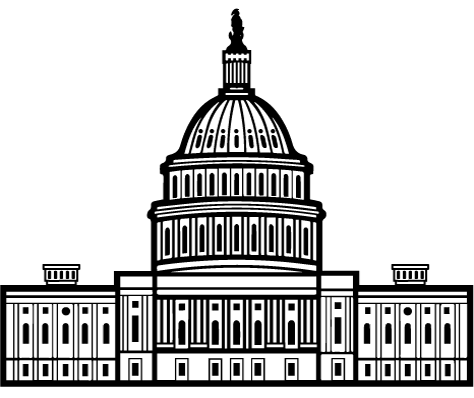The President's Budget Request (PBR) for Fiscal Year 2022 was released on May 28th. The release of a PBR typically marks the official start of the annual appropriations process on Capitol Hill. The step usually takes place on the first Monday in February. However, the PBR is often delayed in presidential transition years to allow a new administration time to set its spending priorities. The administration released a budget outline or "skinny budget" back in April.
The FY22 PBR generally reflects the Biden administration's plan to boost federal R&D programs. Outside of DOD, significant increases are requested in the PBR for federal research agencies and programs -see below.
Noteworthy:
- NIH - The PBR includes $6.5 billion available through FY 2024 for a new Advanced Research Projects Agency for Health that will collaborate "with industry, academia, nonprofits, and other Federal agencies, using traditional and nontraditional mechanisms like Other Transaction Authority, to scale up projects with the most promise for improving health and saving lives..."
- DOE - The PBR includes $200 million for FY 2022 that "will invest in climate-related innovations necessary to enable adaptation, increase resilience and achieve net zero non-energy emissions by 2050."
- NSF - Includes the creation of a technology directorate, as called for in the American Jobs Plan, Endless Frontiers Act (Senate), and NSF For the Future Act (House).
What research groups are saying:
APLU Statement on President Biden’s Budget Proposal
AAMC Statement on President’s FY 2022 Budget Proposal
Research!America Statement on President Biden's FY22 Budget Proposal
| Research Account Dollars in Millions |
FY20 | FY21 | FY20 – FY21 % Change | FY22 PBR EST/TBD | FY22 PBR – FY21 Enacted % Change EST/TBD | FY22 Preliminary APLU Request* (>) | FY22 APLU Request – FY21 Enacted % Change |
|---|---|---|---|---|---|---|---|
| Department of Defense, Science & Technology (6.1-6.3) | 16,074 | 16,873 | +4.97% | 14,685 | -12.97% | 17,885 | +6.00% |
| Department of Defense, S&T, Basic Research (6.1) | 2,603 | 2,671 | +2.61% | 2,282 | -14.56% | 2,831 | +5.99% |
| Department of Defense, DARPA | 3,458 | 3,501 | 1.24% | 3,528 | +0.77% | 3,712 | +6.03% |
| ED, Institute of Education Sciences | 623.5 | 642.5 | +3.05% | 737.5 | 14.79% | 700 | +8.95% |
| Energy, Office of Science | 7,000 | 7,026 | +0.37% | 7,400 | +5.32% | 7,700 | +9.59% |
| Energy, ARPA-E | 425 | 427 | +0.47% | 500 | +17.1% | 500 | +17.10% |
| EPA, Office of Science | 716 | 729.3 | +1.86% | 829.9 | +13.79% | 773 | +5.99% |
| National Aeronautics and Space Administration (NASA), Science Mission Directorate | 7,139 | 7,301 | +2.27% | 7,931 | +8.63% | 9,000 | +23.27% |
| NASA, Aeronautics Research Directorate | 784 | 828.7 | +5.70% | 915 | +10.41% | 900 | +8.60% |
| NASA, Space Technology | 1,100 | 1,100 | 0.00% | 1,400 | +27.27% | 1,500 | +36.36% |
| National Endowment for the Humanities | 162.3 | 167.5 | +3.20% | 177.6 | +6.03% | 225 | +34.33% |
| National Institute of Food Agriculture, Ag. and Food Research Initiative | 425 | 435 | +2.35% | 700 | +60.92% | 470 | +8.05% |
| National Institutes of Health | 41,700 | 42,900 | +2.88% | 52,000 | +21.21% | 46,111 | +7.48% |
| National Institute for Standards and Technology (NIST), Manufacturing Extension Partnerships | 146 | 150 | +2.74% | 275 | +83.33% | 165 | +10.00% |
| NIST, National Network for Manufacturing Innovation | 16 | 16.5 | +3.13% | 167 | +912.12% | 40 | +142.42% |
| National Oceanic and Atmospheric Administration (NOAA), Oceanic and Atmospheric Research | 548 | 570.6 | +4.12% | 722 | +26.53% | 640 | +12.16% |
| NOAA, Sea Grant | 67 | 69.5 | +3.73% | TBD | TBD | 107.9 | +55.25% |
| National Science Foundation | 8,280 | 8,487 | +2.50% | 10,200 | +20.18% | 10,000 | +17.83% |


